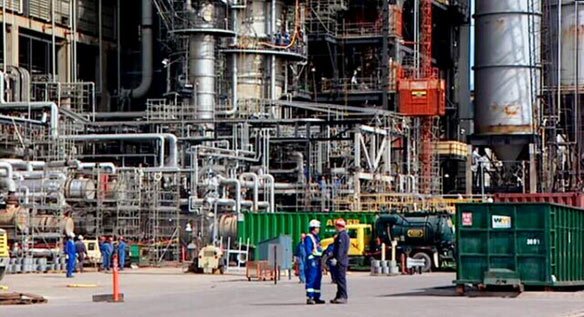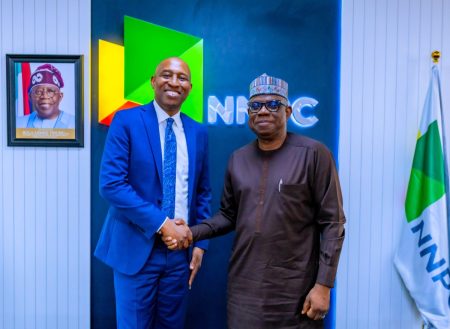19 December 2011, Vanguard Newspaper, LAGOS – It is reasonable to argue that the current subsidy being put on petroleum products, especially Premium Motor Spirit (PMS) or petrol, should be allowed to remain. This is because every economy, like most proponents of subsidy retention had rightly argued, provides subsidy to its citizenry in one way or the other. For instance, the United States of America (USA) and Europe, where hunger has been conquered, massive subsidy is placed on agriculture and its produce. This is why food in these countries are cheap and affordable to both the poor and the rich.
In fact, at certain times in these countries agricultural produce are bought off farmers at their market rates and pushed into the sea, not necessarily to feed the sea animals, but more importantly to encourage the farmers to continue in their business.
These are countries where subsides are properly channeled and where societies have developed methodical and functional systems, which are ethically, professionally and proficiently driven.
In these societies also, the rule of law makes it imperative for those who are caught in the web of misdemeanor, corruption or unethical conducts to face the music in ways that would patently pass the deterrence message to would-be offenders.
However, when the Federal Government says the subsidy on fuel is unsustainable it becomes understandable and also makes better economic sense for a number of reasons. From a little above 10 per cent a few years ago, the cost of subsidy has galloped to over 30.1 per cent of the national budget.
This means that out of a budget of N4trillion, more than N1 trillion would be used to subsidise fuel supply. This is exactly what happened in the 2011 budget, where the N250billion appropriated for subsidy was over-shot by as much as N1.3trillion.
Available information from the Petroleum Products Price Regulatory Agency (PPPRA) indicates that as much as N3.6 trillion was spent on fuel subsidy in the last six years with a princely N1.3 trillion being spent in 2011 alone. The volume of the subsidy has, comparatively, made the budget for capital expenditure of little relevance to the citizenry and the economy generally. For instance ,in 2006, N261 billion was committed into funding subsidy from a capital budget of N569 billion.
In 2007, some N297 billion was also committed in the subsidy project, from a capital budget of N716 billion. The same circle was repeated in 2008 when subsidy stood at N631 billion from N787 billion Capital provision. And in 2010, it was N631 billion from N 936 billion.
According to Dr .Diezani Alison-Madueke,the Petroleum minister , the cost of funding subsidy has continued to gulp a huge portion of the national budget, peaking at 30.1 per cent in 2011. By every standard only an unreasonable government would enact an Appropriation Act and deploy it to the procurement of fuel from other countries. The development has grave implications for the importing nation.It must be noted that the cost of the subsidy would maintain an upward swing in line with the volume of fuel consumption in the country.
As at the second half of the year, PMS daily consumption stood at some 32 million liters. The further meaning of this huge consumption is that N2.6 billion is spent daily on the subsidy, given that the landing cost of petrol is N129.21 with marketers and transporters margin of N15.49 and pump price rate of N144.70.The employment gap existing in the downstream oil sector is huge. This is essentially because the country has failed to properly manage her refineries.
In any case, it is no longer news that the in thing across the globe is for the government to limit itself in the areas of policy formulation and general application of governance issues, while leaving the issue of business, to the private sector. This is why a deregulated downstream would encourage the private sector to come into the sector for competition, profitability and accountability to drive it.With a combined output capacity of 445,000 barrels per day (bpd), from its four refineries at Port Harcourt, Kaduna and Warri, it would have been expected that the country would be self-sufficient in fuel supplies. But this has not been so, given that it is civil service-driven.
Instructively, those who are currently running these refineries are Nigerians who can not be change over night in character and attitude to government business. Today, the country has ended up creating jobs for other countries, while leaving huge job gaps in its economy.
As it is currently, no private investor – whether local or foreign would dare to invest in the downstream sector where prices of products – petrol and kerosene, or any other by-product of the plant for that matter, are regulated. The only way out for the country to generate jobs in the downstream sector is to allow the laws of demand and supply to dictate the market.
It is heart warming that on the matter of deregulation of key sectors of the economy, there are references. A simple case is the telecommunication industry following the licensing of some private companies like MTN, Globacom and Airtel among others.




